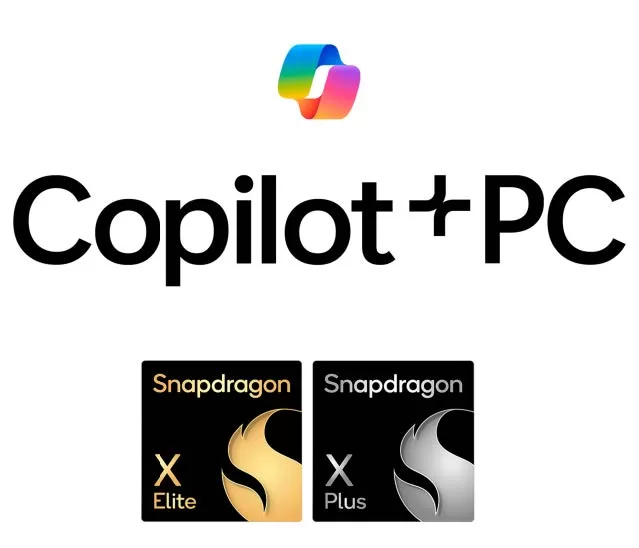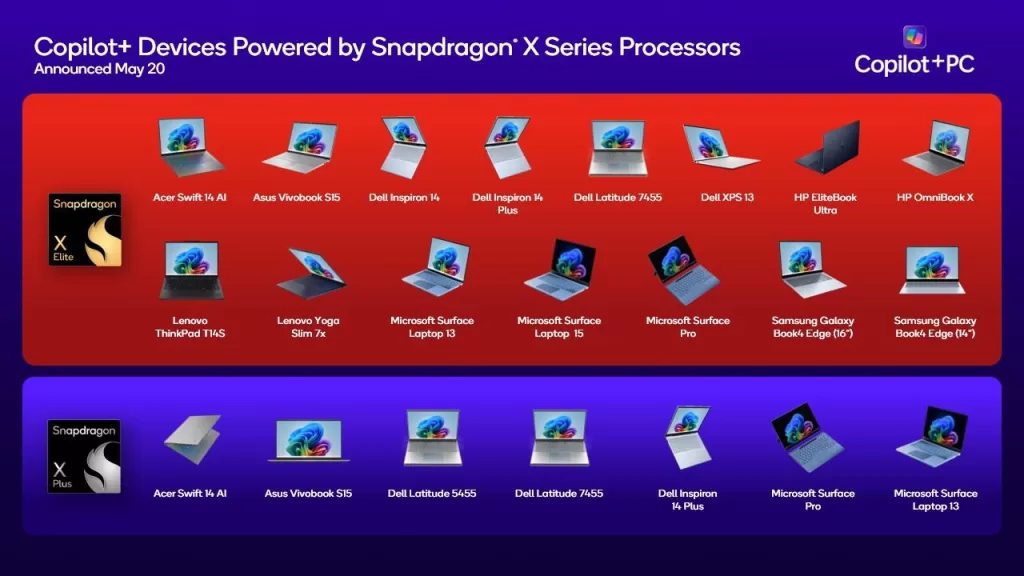The new Copilot+ PCs are running Qualcomm’s latest made-for-pc system on a chip (SoC). The Snapdragon X SoCs were announced together with Microsoft’s new Copilot+ PC standard. So far, Microsoft itself has used the SoC on the latest Surface Laptop and Surface Pro. Other OEMs have also introduced laptops carrying the same chipset under the Copilot+ PC program.

The new Snapdragon X SoCs are fabricated using a 4nm process and come with Qualcomm’s Oryon CPU, Adreno GPU and Hexagon NPU (Neural Processing unit). The combination of the three empowers higher performance and better battery life. Qualcomm boasts that Snapdragon X Elite delivers current peak PC CPU performance at 60% less power.
There are two variants of the Snapdragon X SoC: the Snapdragon X Elite and the Snapdragon X Plus. The Elite features a 12-core Oryon CPU clocked at 4.2 GHz with a 5% dual-core boost, an Adreno GPU capable of up to 4.6 TFLOPs performance and a Hexagon NPU capable of 45 TOPS performance. The Plus features a 10-core Oryon CPU with dual-core boost, an Adreno GPU with up to 3.8TFLOPs performance and the same Hexagon NPU.
Qualcomm boasts that the Snapdragon X chips are built for AI. This is primarily due to the inclusion of the Hexagon NPU which is the cornerstone of the SoC. AI tasks are primarily run using the NPU and offload complex, energy-draining processes from the CPU. This results in better power efficiency and an overall boost in performance. The chip also supports 5G connectivity and WiFi 7.
According to Qualcomm’s internal benchmarking, the Snapdragon X Elite is able to perform better than currently available chips from AMD and Intel with 60% better power efficiency, 52% better CPU performance and 36% better GPU performance. Wins across the board. The company is boasting a 2.6x improvement on Apple’s M3 processor and 5.4x improvement over Intel’s Core Ultra 7 processor.

We will have to wait to see how performance is with the first wave of Copilot+ laptops set to be released soon. Over 20 laptops are coming from various OEMs including Dell, Acer, ASUS, HP and Samsung that will be using the Snapdragon X SoCs.





